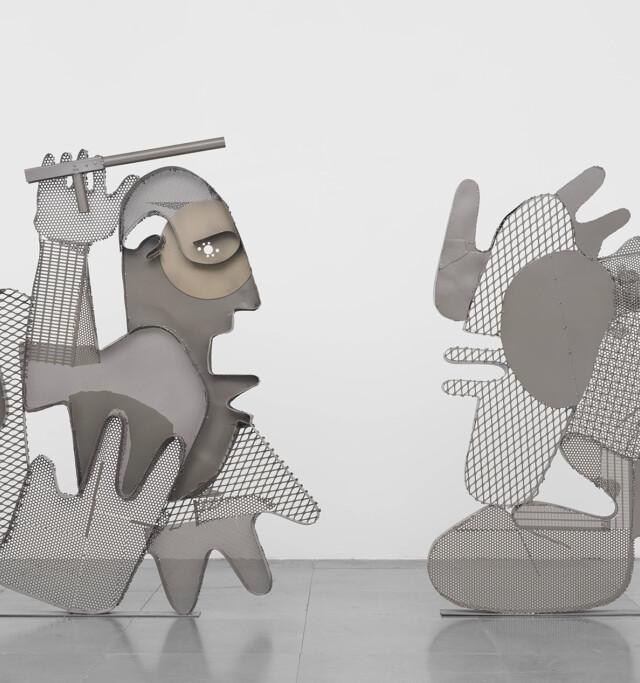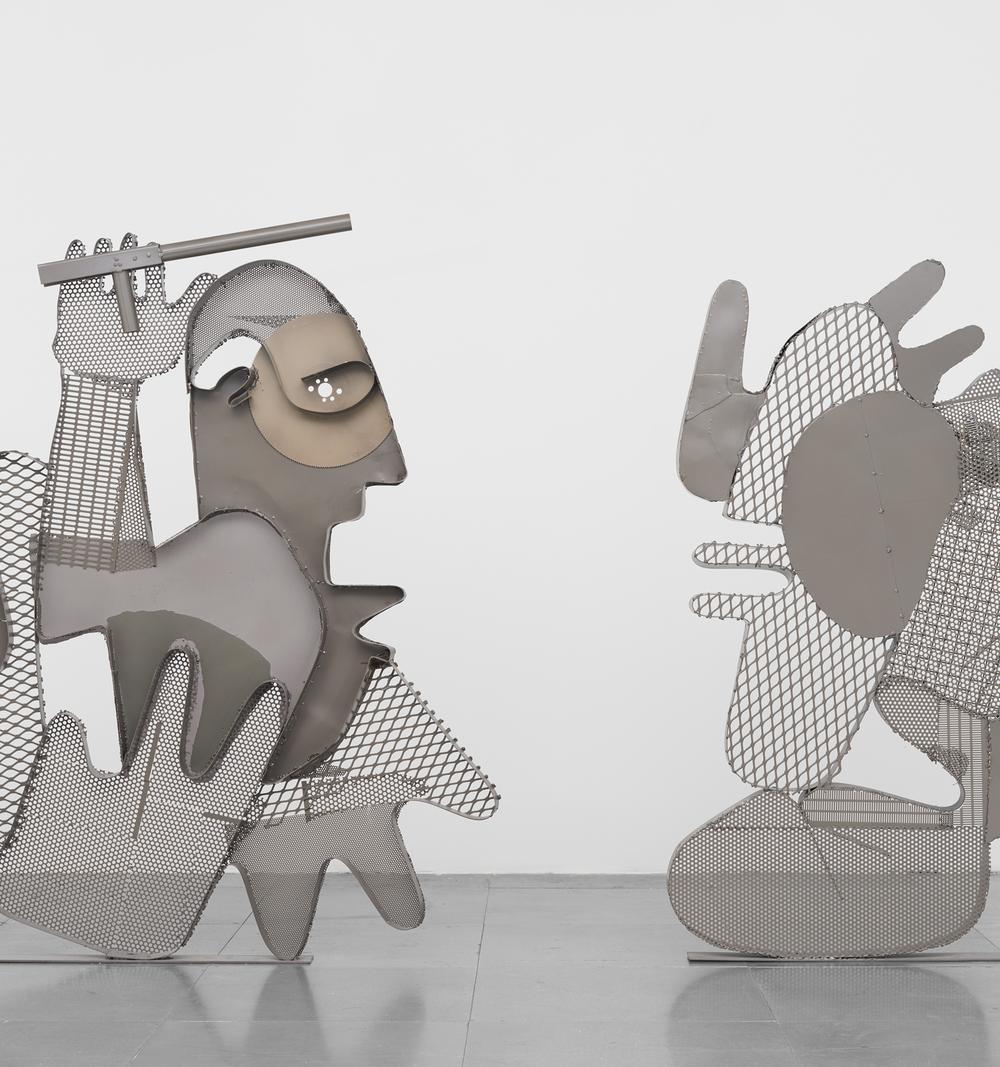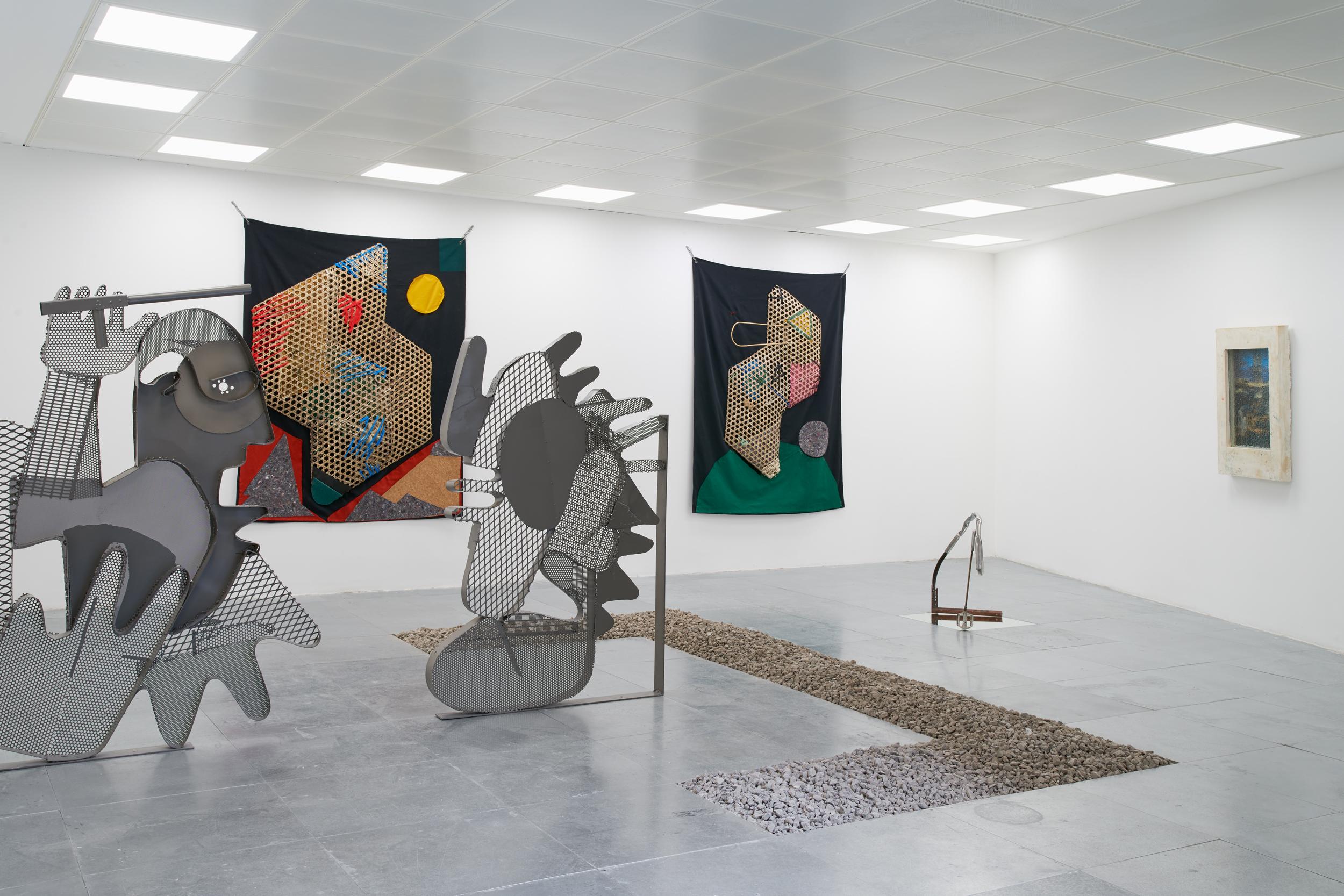
exhibitionRafael D’AlóNews from Home01.04—05.05.202256 Conduit Street
11:00am—6:00pm56 Conduit Street
For his first solo show in London, Brazilian artist Rafael D’Aló presents a group of works
made in a variety of media over the last 2 years. Continuing his work with materials and
objects frequently found on the streets of London, the works in the exhibition investigate the
notion of the city and land and how we navigate them.
The exhibition space is demarcated by a two-part metal sculpture installed at the entrance.
Titled The Revolution Will Not Be Televised, it depicts profiles of two abstracted figures
facing one another, as if in a stand-off. The sculpture echoes a city gate, which the visitor
needs to cross in order to access the reality behind it. The replacement of selected floor tiles
with gravel makes the space uneven, similarly to pavement blocks laying the streets.
The two large wall works made with scraps of fabrics, fishing net and twine that connects the
geometrical shapes together, point towards consumerism, production of goods and our
urban relationship with the world. On two opposite sides are works framed in thick plaster
that almost recall abstracted Pointillist paintings. Distorted through hammered glass and
impossible to decipher, they are made using photographs from archival issues of National
Geographic magazines and depict stereotypical and Western views of South American
culture and Latino men.
Made using a wide variety of media including metal, fabric, fishing net, hammered glass and
found photographs, among others, the hybrid works are connected through textures and
different material characteristics. Together they form an installation where each work is in
dialogue with the other, exploring commodification and centralisation of goods and culture in
relation to urbanism, land and home.

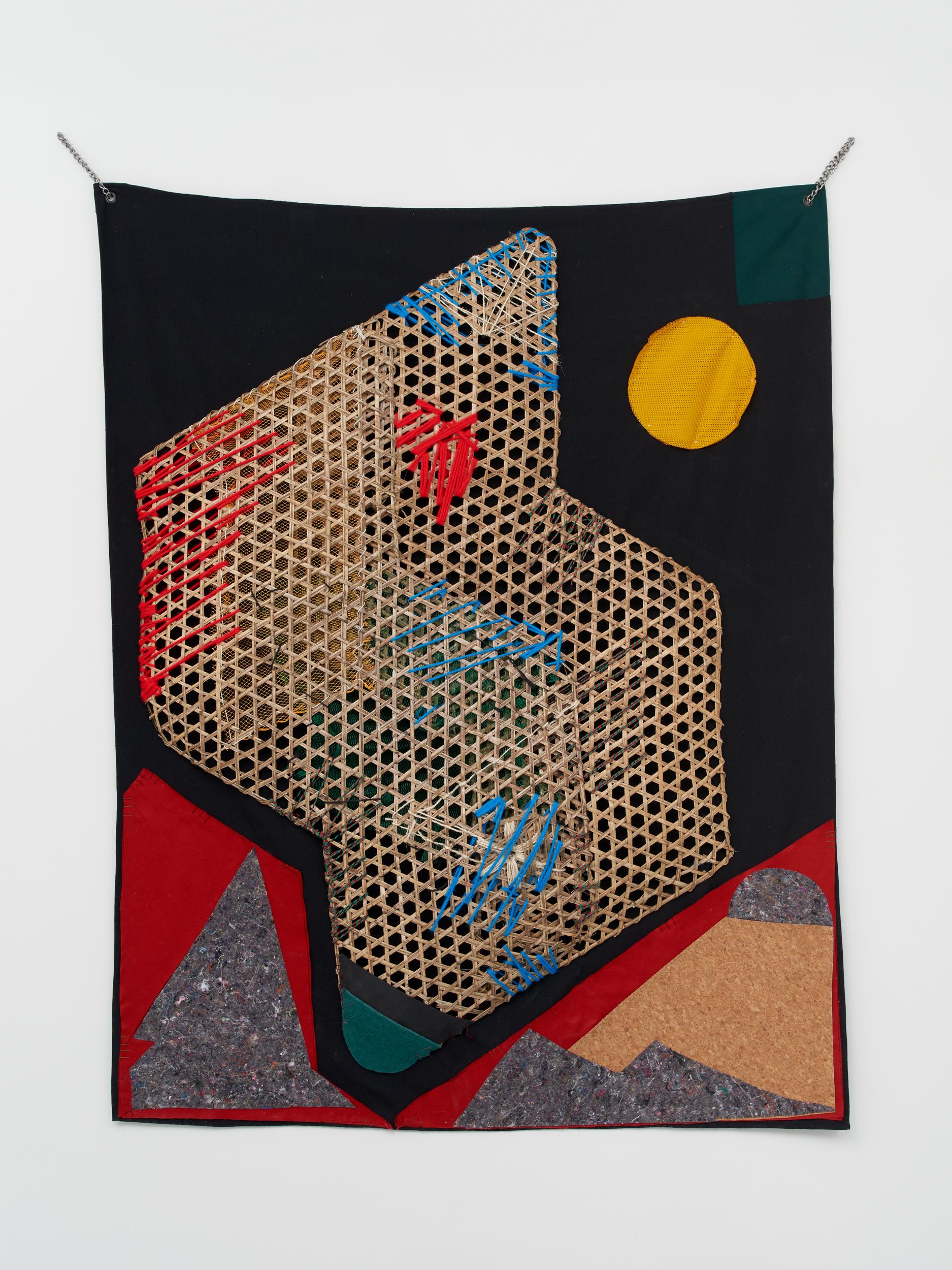
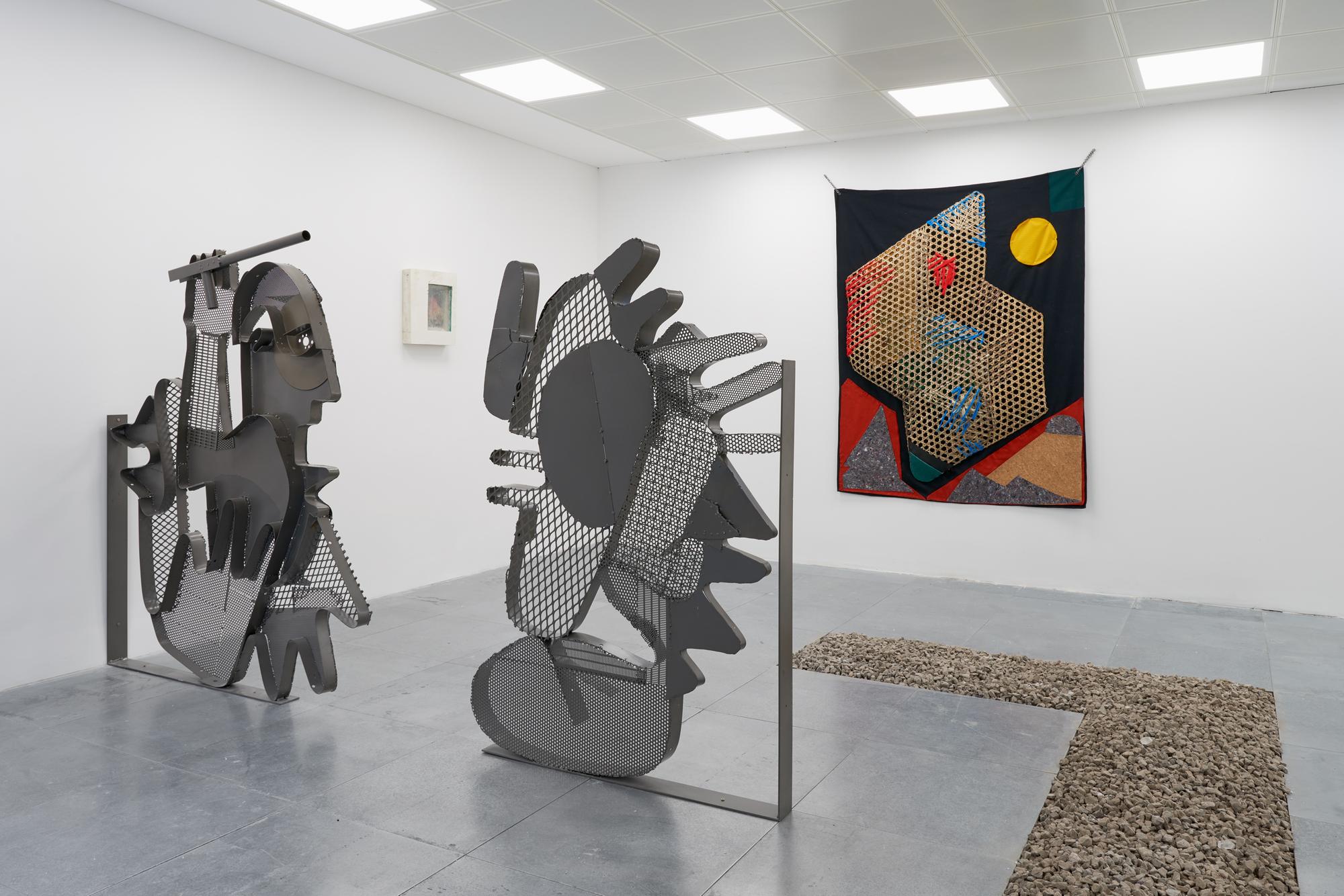
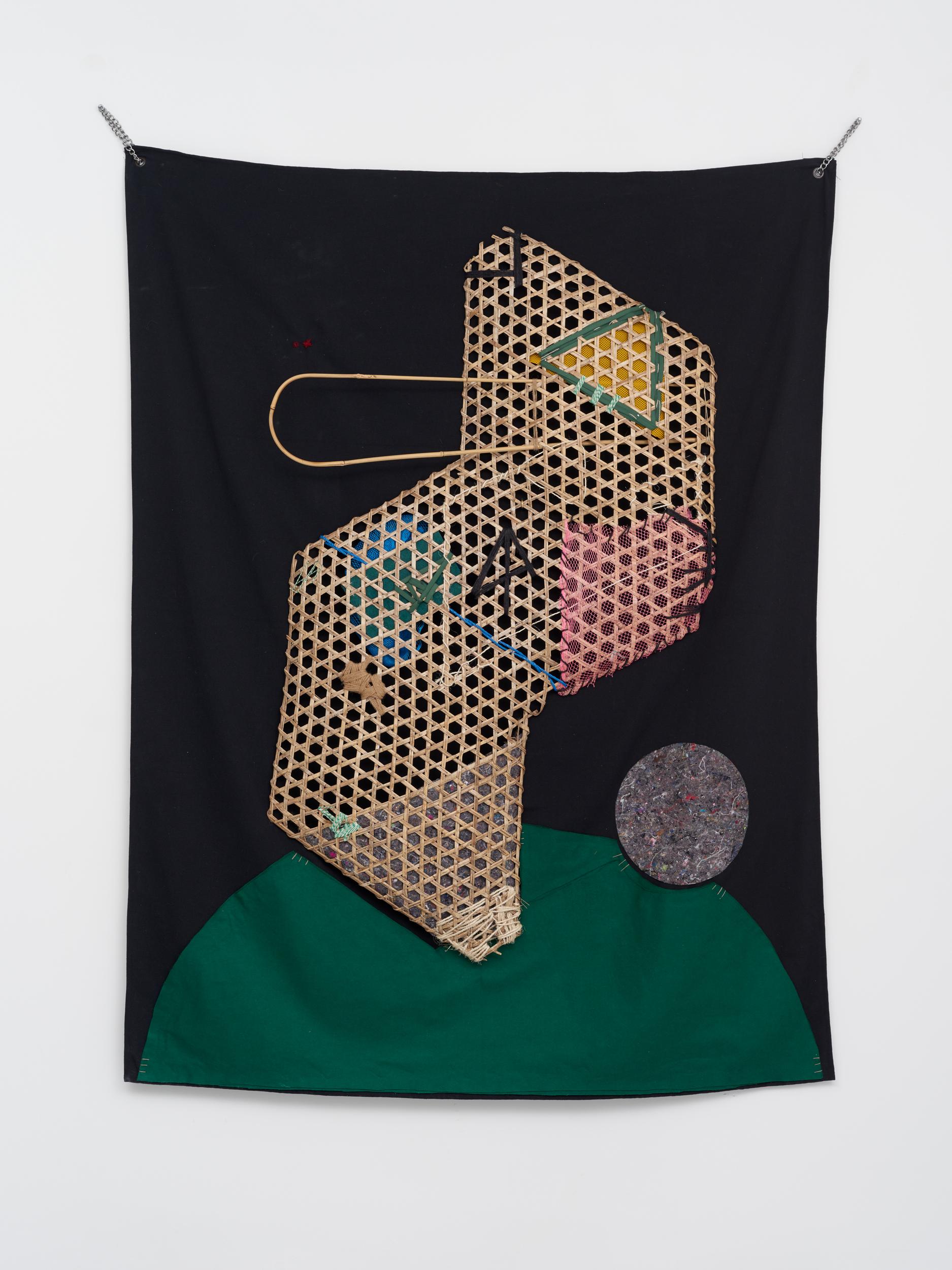
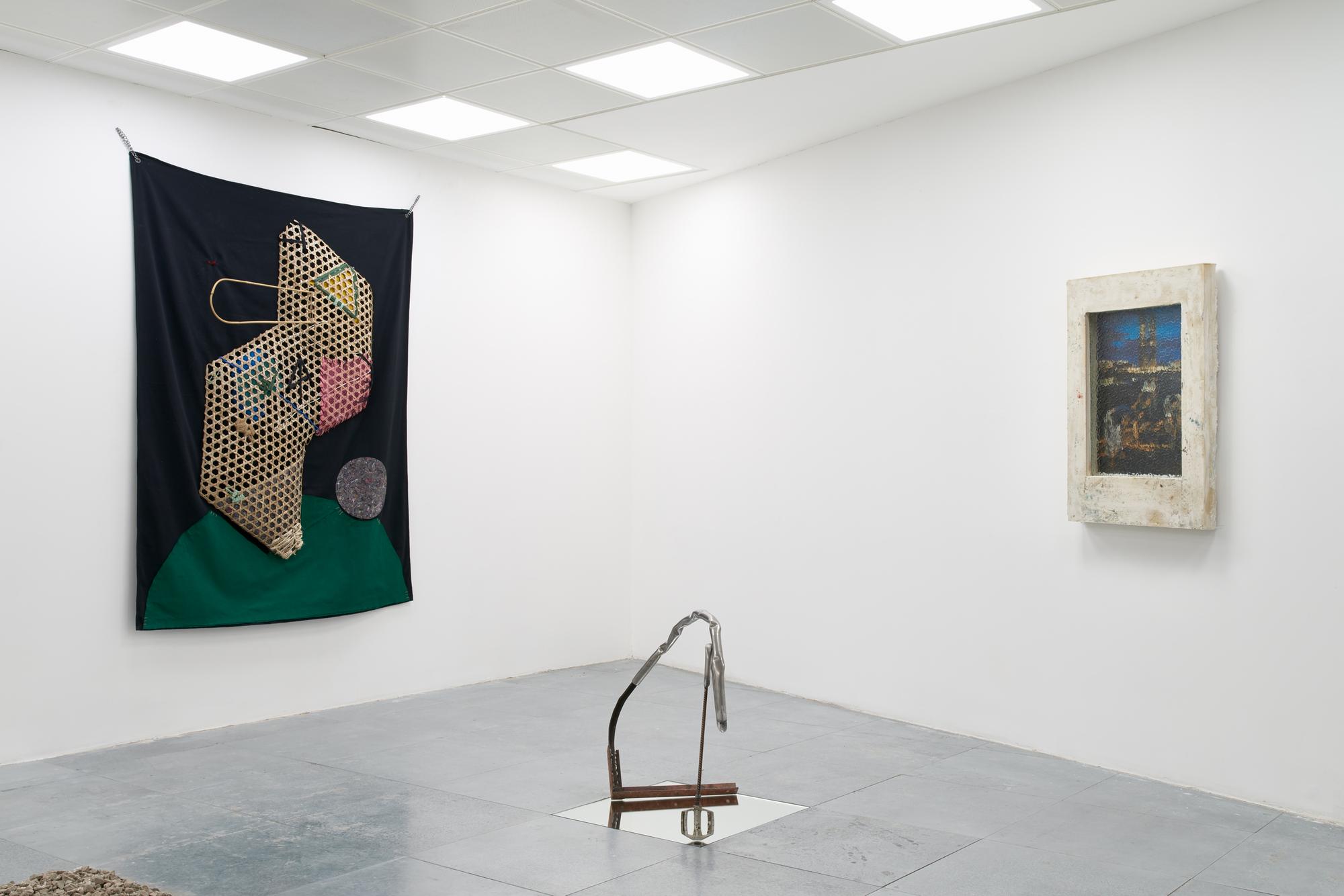
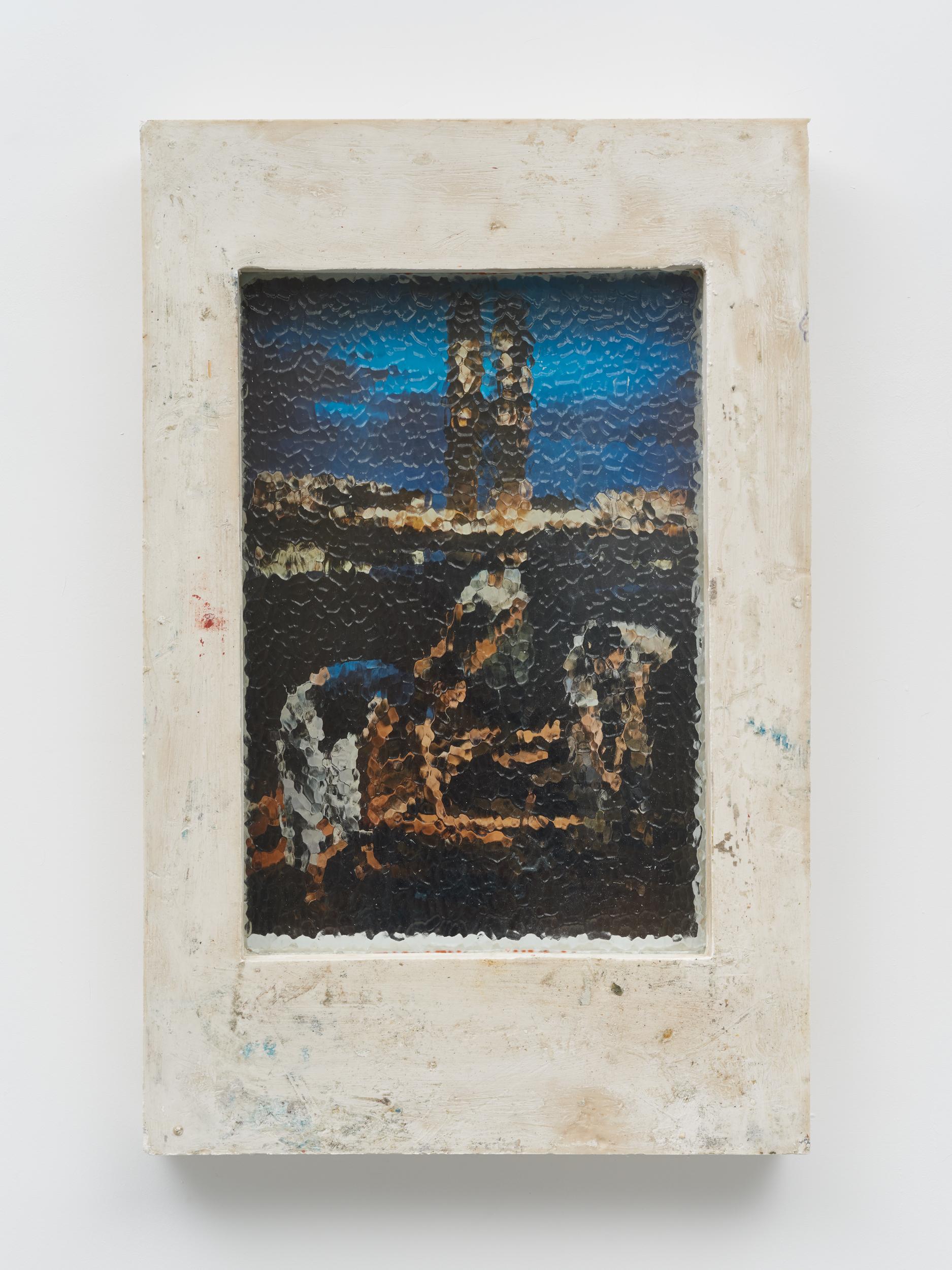
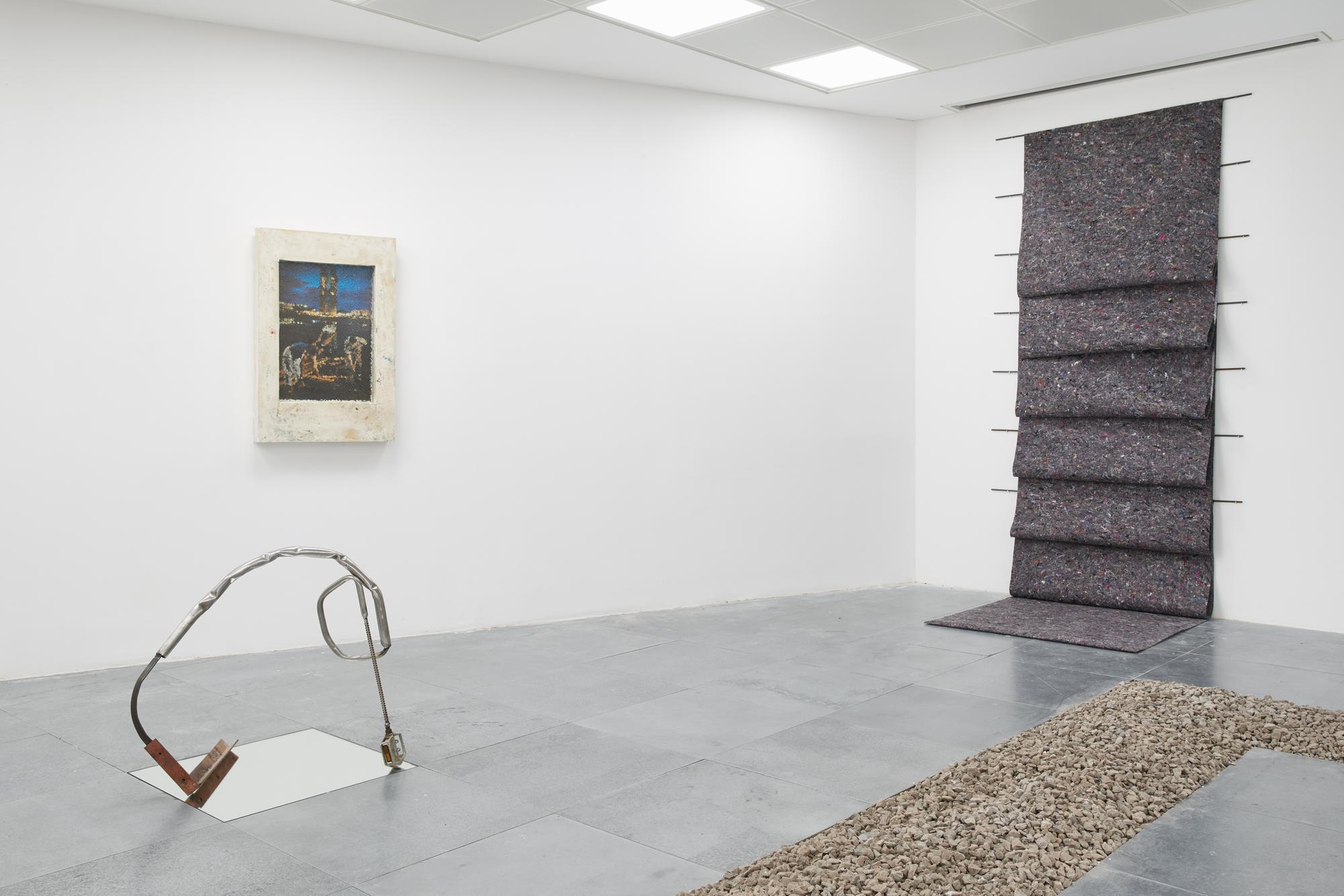
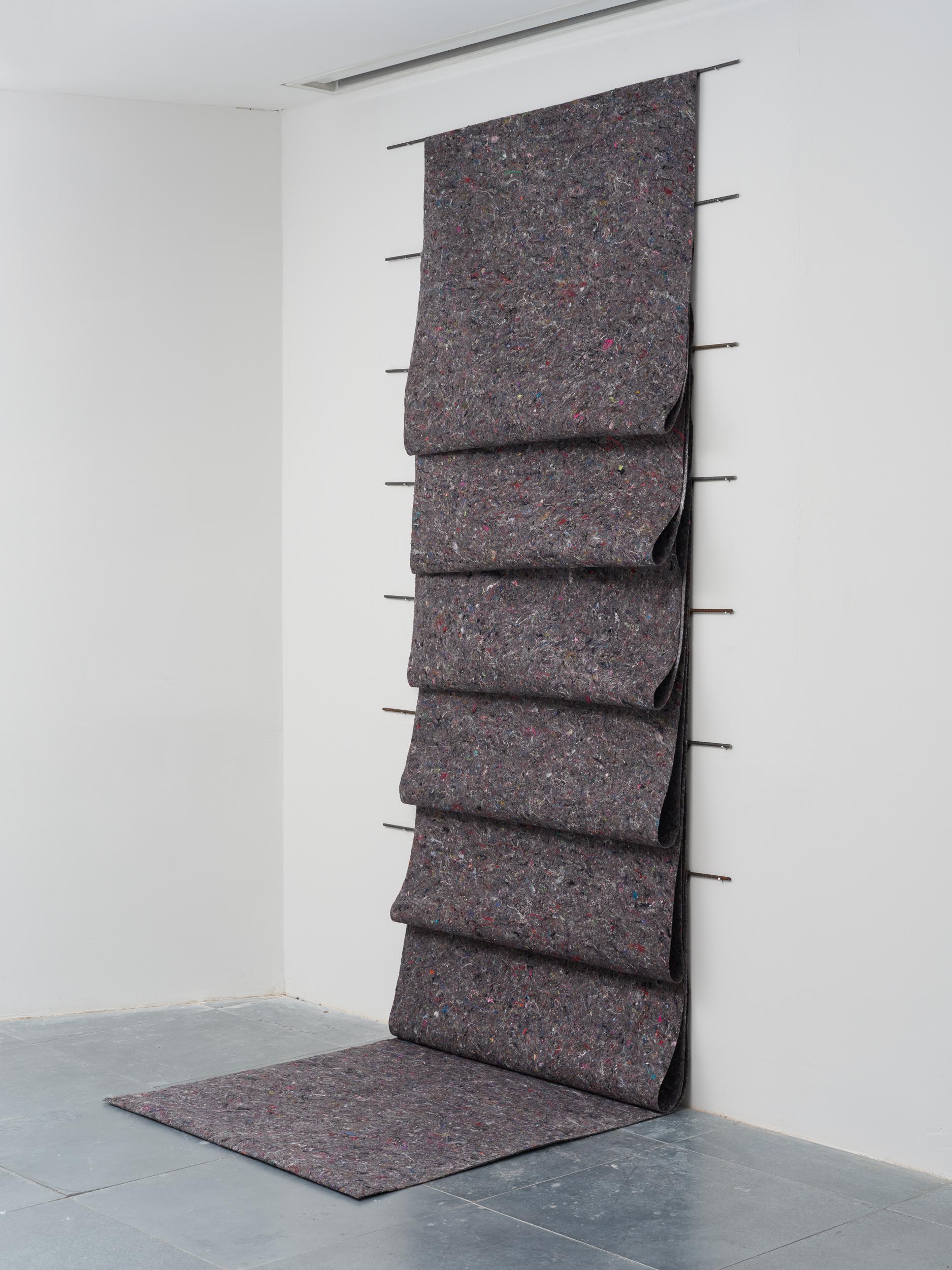
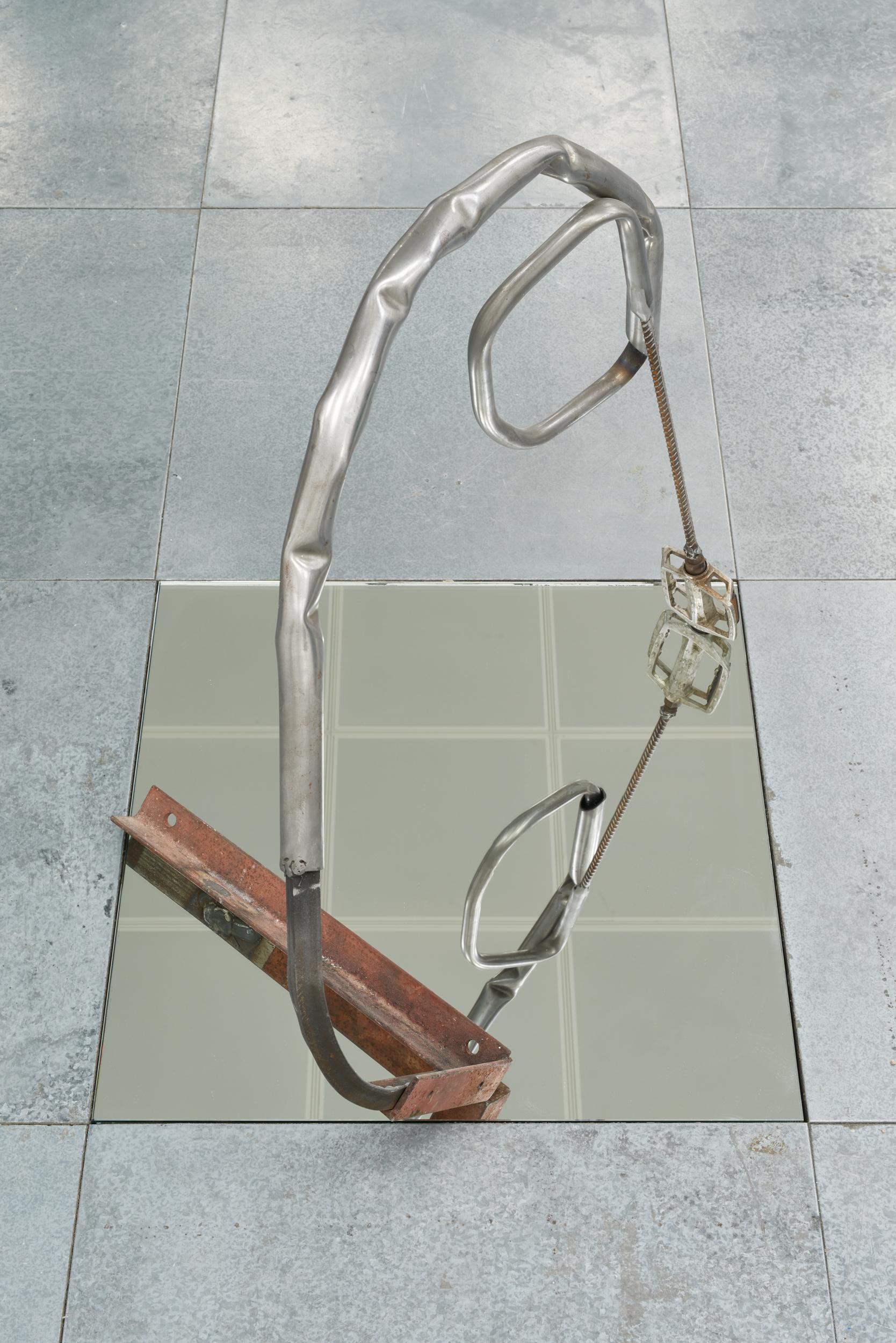
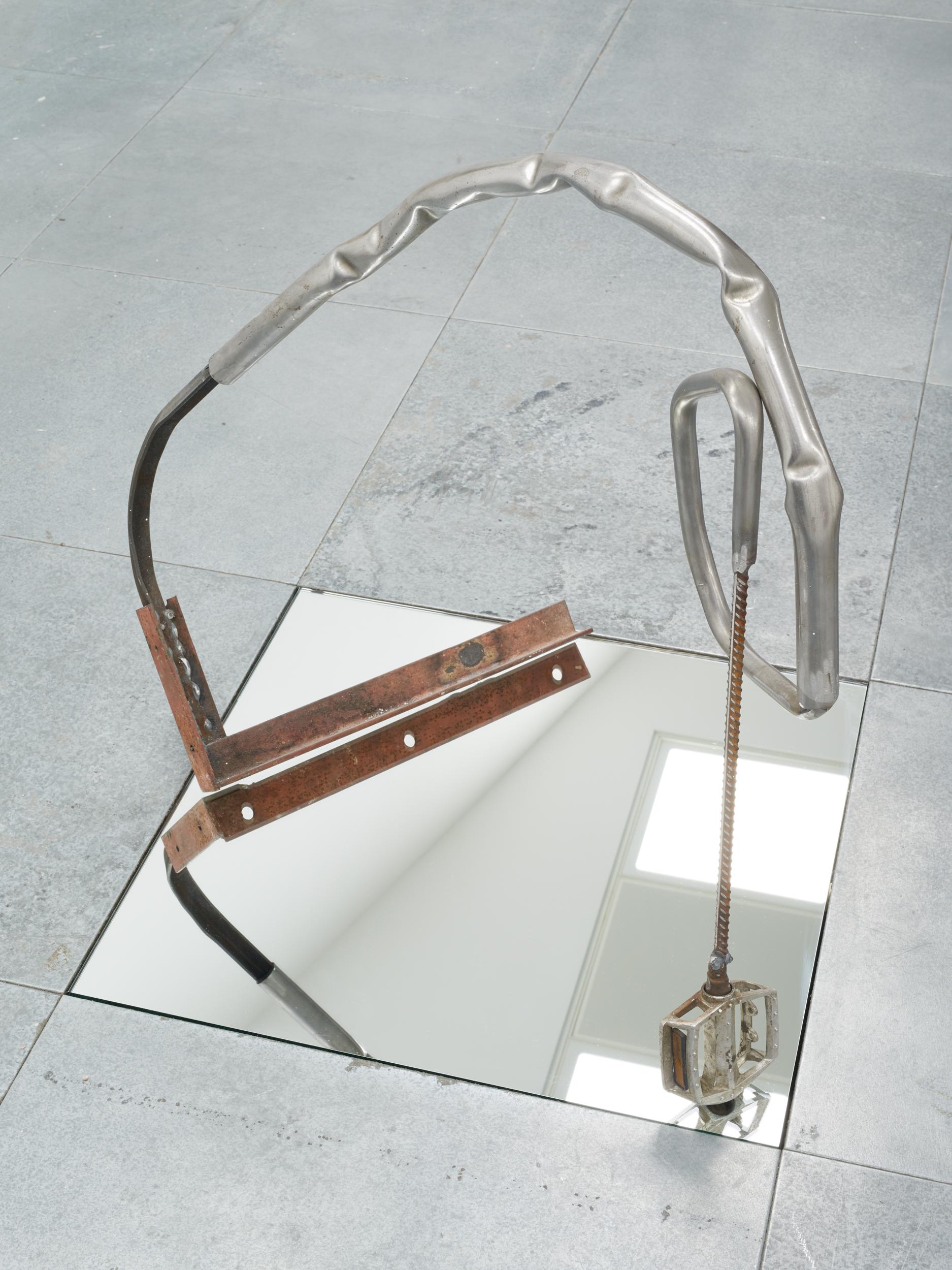
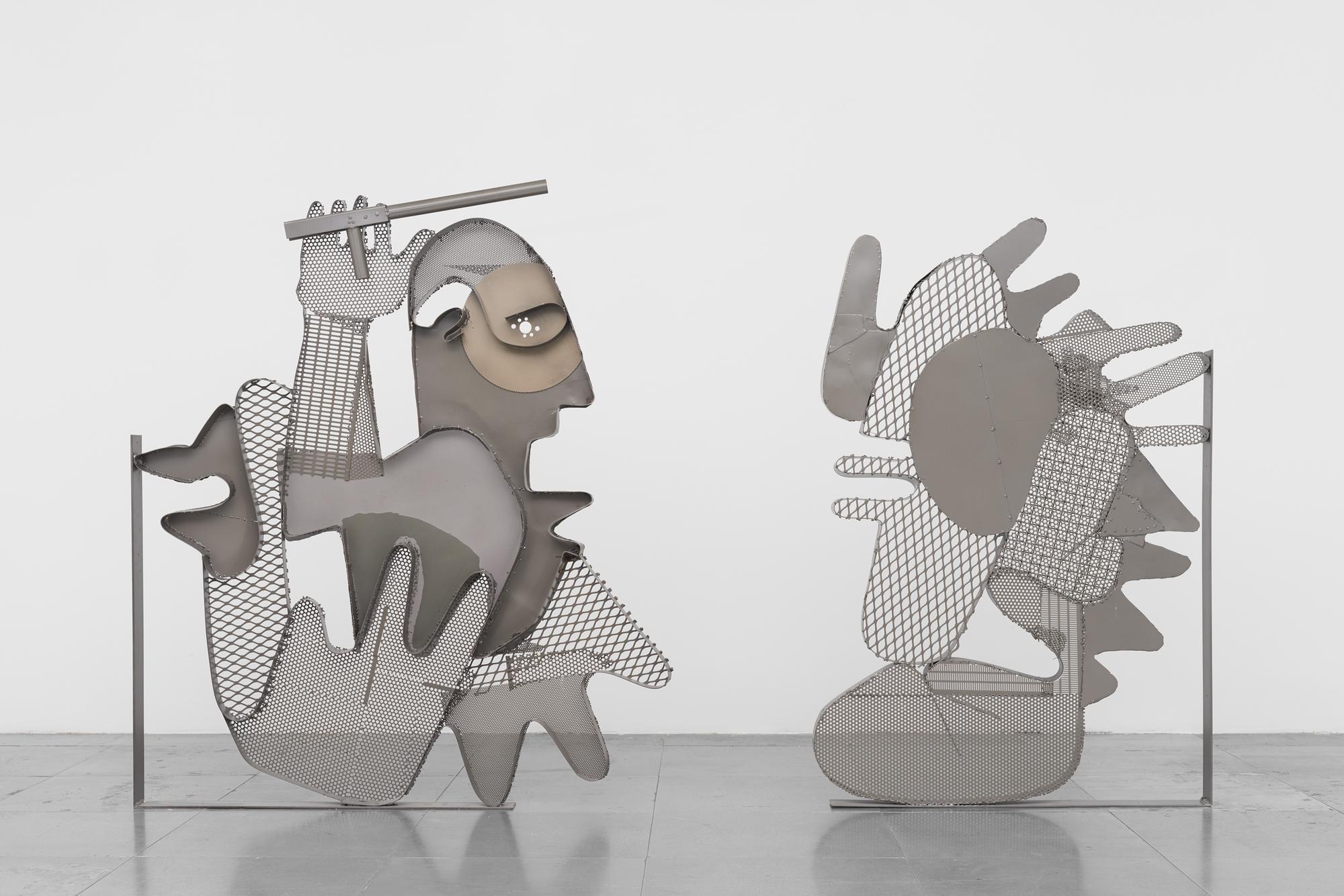
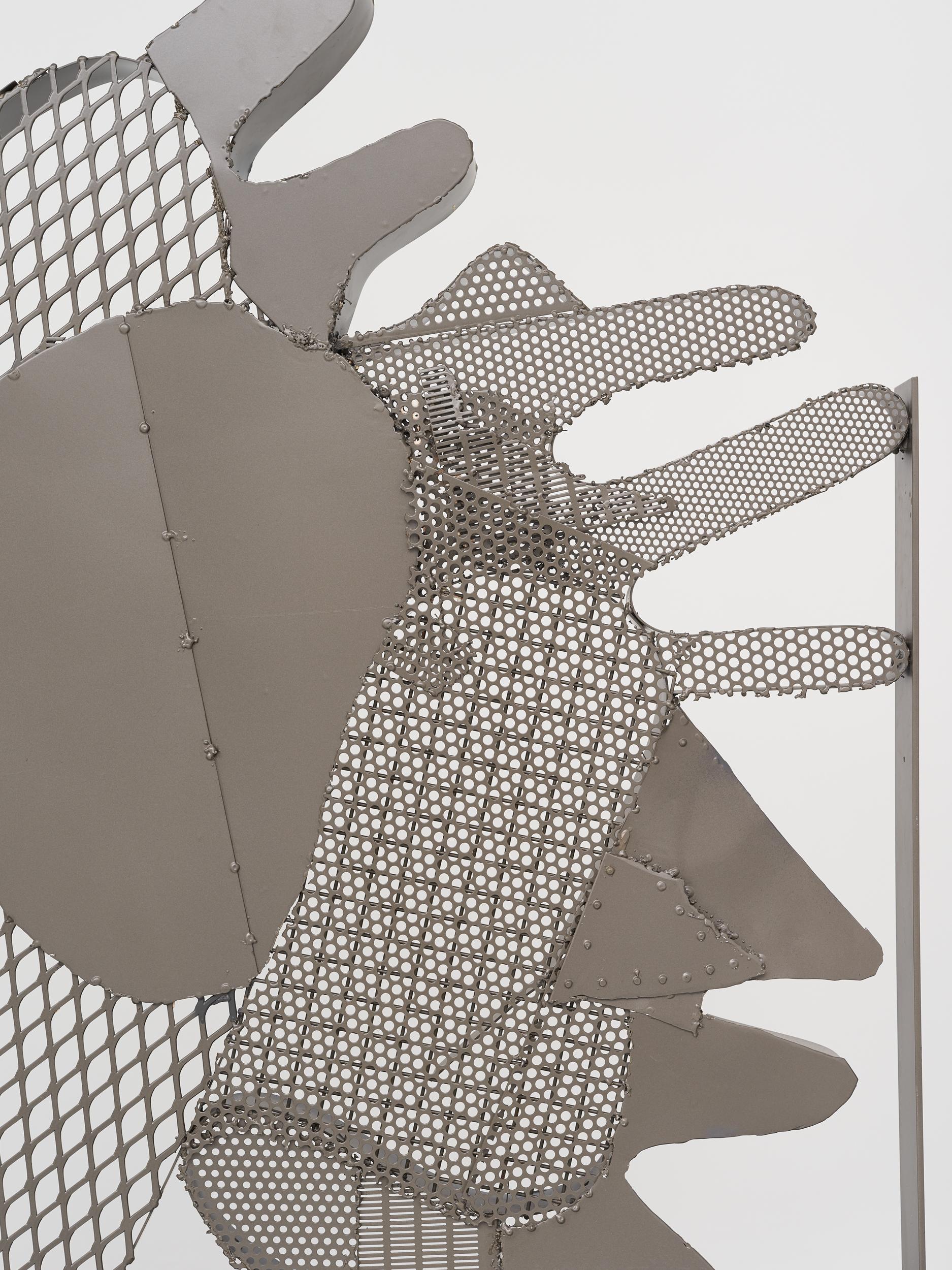
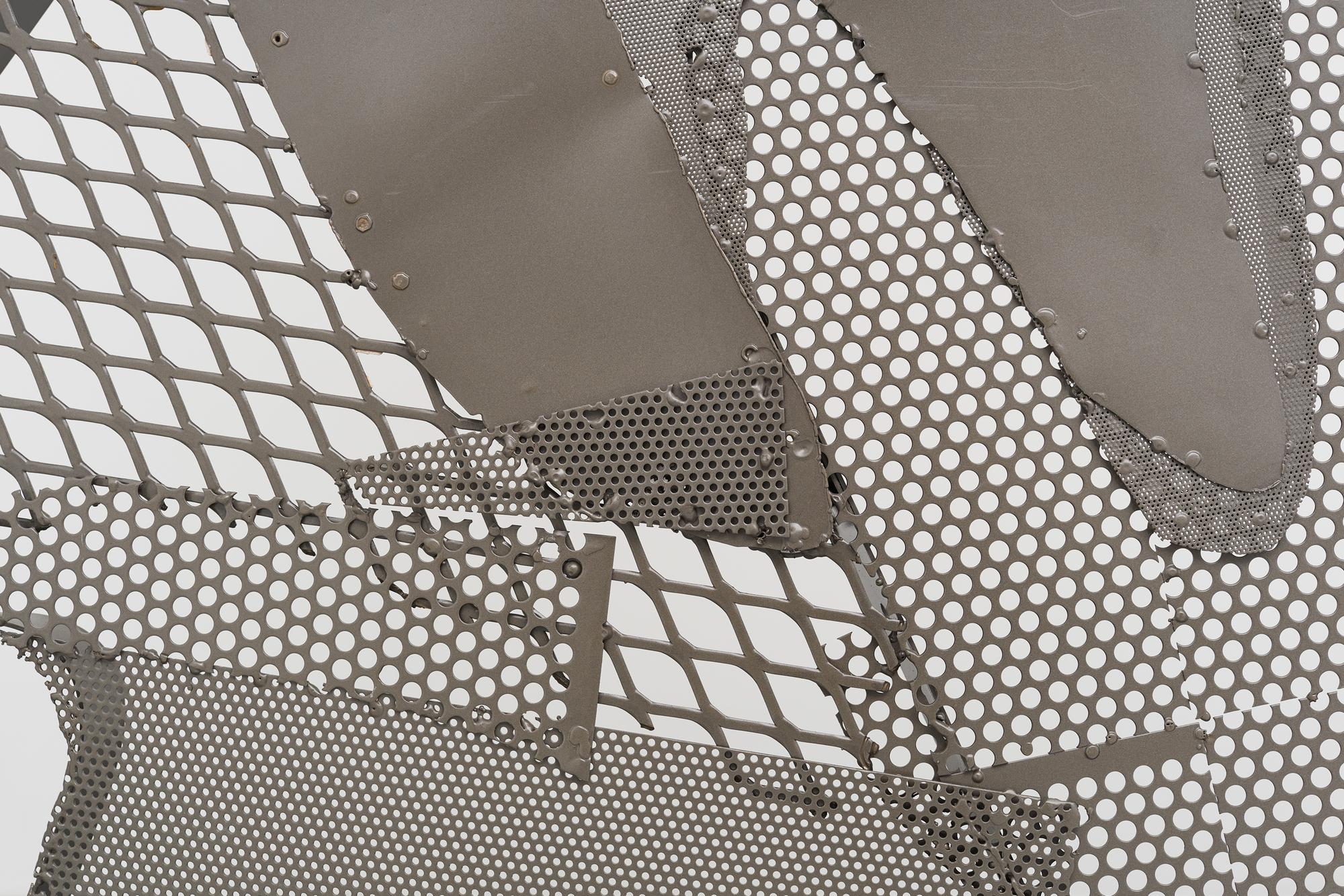
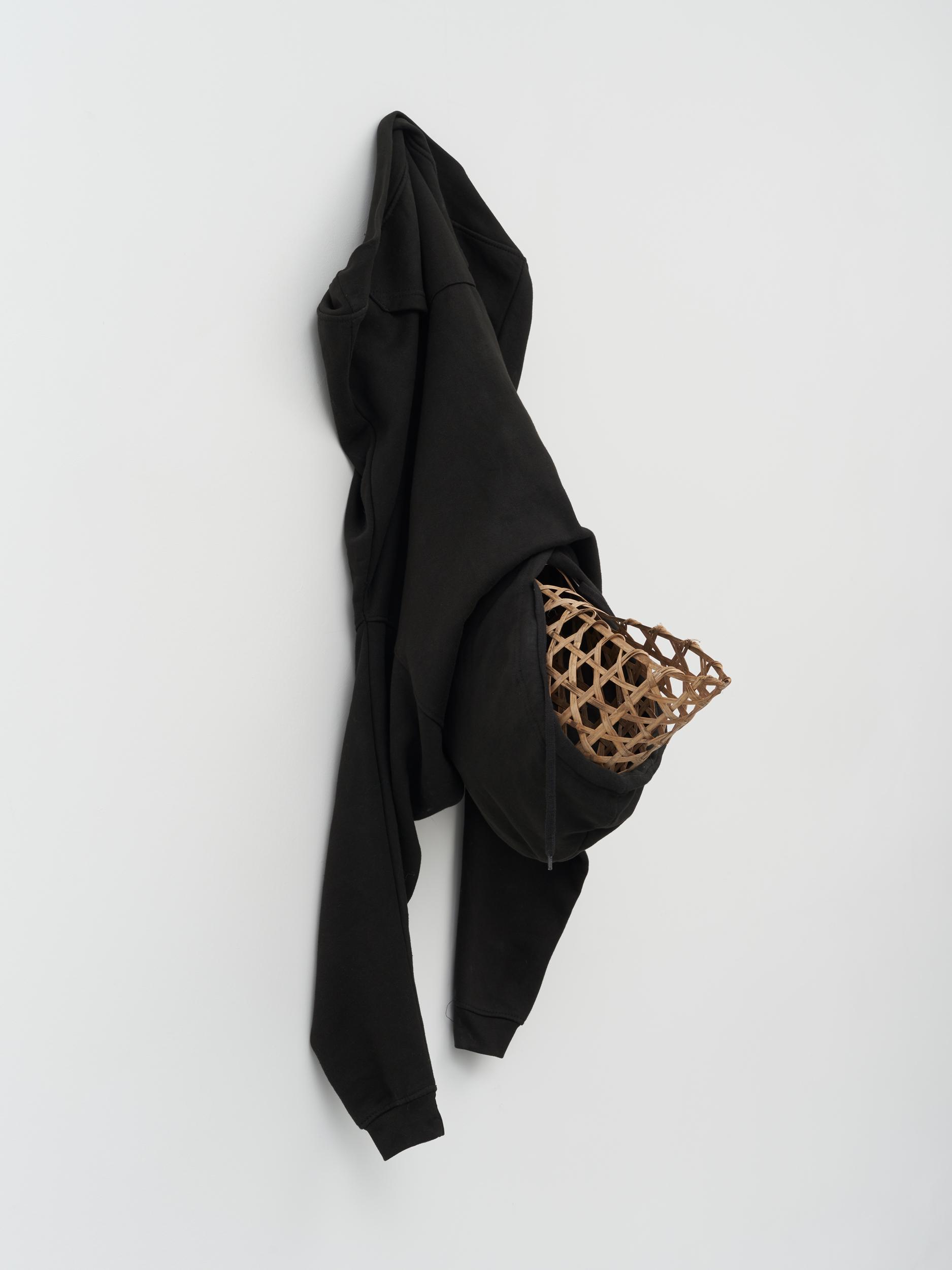














Investigating is at the heart of Rafael D’Aló’s practice. Sculptures, paintings and installations are composed of bits of found information that come together to retell stories and establish new relationships between fact, fiction and possibly the fun we have at deconstructing old myths. His works are articulated through juxtaposing materials, colours and found images, remnants of our life in the city, generating an interplay that hints at our fertile collective imaginary and the fast consuming world we inhabit.
D’Aló’s work invokes the innate wisdom of the oppressed to play with the iconography of power struggle and desire. Each piece informs the next creating an ever-evolving chain of metaphors between what’s past and what we have yet to discover and the embedded irony of history.
